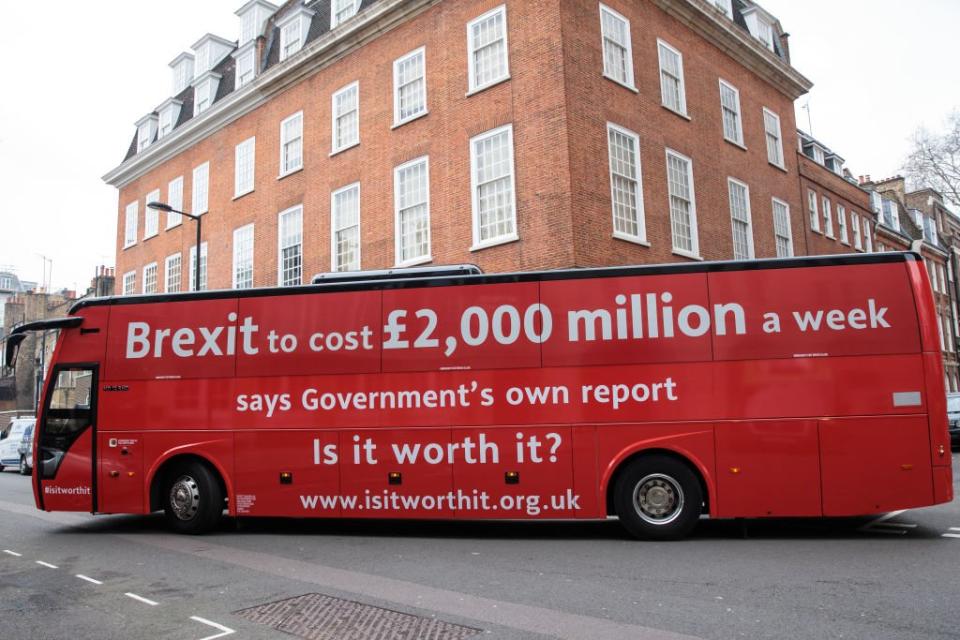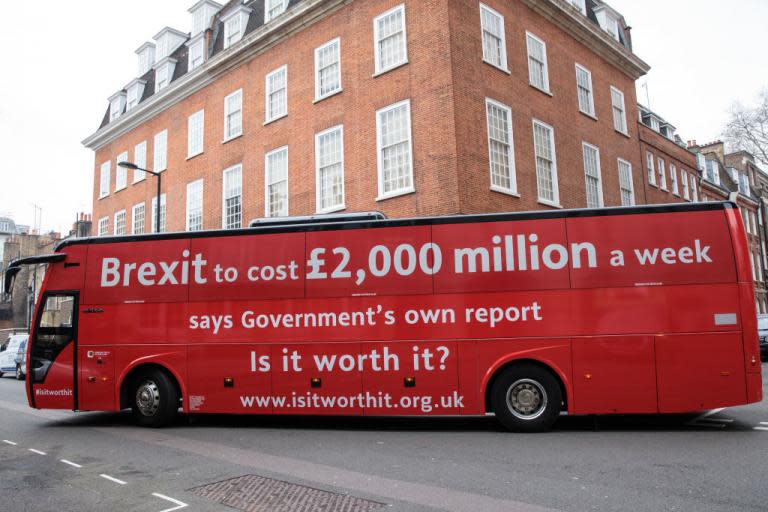Brexit and Trump have proved that lies are more attractive than facts
When it comes to Brexit, there can surely be no dispute that we know more about the process now than we did at the time of the referendum in 2016. For a start, we know for certain – and have done for a while – that cutting a deal isn’t as easy as some Brexiteers suggested it would be. Let’s remember Liam Fox’s optimistic comment last summer that a trade deal with the EU should be “one of the easiest in human history”.
We also know that if we do get a deal, there will be a transition period of at least 20 months during which the UK will continue to follow EU rules. It might be longer of course.
We know too that under the existing agreement in principle, the UK will be liable to pay an exit settlement fee of around £35-£39bn.
And we know that if a no-deal scenario comes to pass – as some more ardent Brexiteers would prefer – the consequences are likely to be significant. For instance, some drugs will, for a period, probably be in short supply for people living in Britain; and the introduction of some new medicines will be delayed. Residency rights for Britons living abroad will not be assured: President Macron said yesterday that British workers would have to apply for new permits, while any UK visitor to France would require a visa, in addition to their passport. This is to say nothing of the broader economy.
These are among the reasons why The Independent is campaigning for the people to be given a Final Say on Brexit.
Of course there remain unknowns about Brexit’s realities – whether or not a deal is ultimately done. Yet it is, on the face of it, a peculiarity that both sides in the debate use speculation about the unknowns as much if not more than established facts to bolster their arguments. That is perhaps especially true of those who support EU withdrawal, who assert with a remarkable degree of assurance that things will turn out fine (in the long term anyway).
But then this is partly a product of the age we live in, when uncertainty can be overcome by a quick Google search; any hunch or opinion can be bolstered by information found online – you just have to look hard enough.
Brexit may be a particularly apposite case study but it is hardly the only one. Donald Trump’s successful White House run was predicated to a significant degree on the construction of various electorally appealing myths or half-truths: that global warming was a Chinese hoax; that the US was being overrun by murderous immigrants from Mexico who could be kept at bay by the construction of a giant wall; that thousands of American Muslims cheered when the twin towers were destroyed on 9/11; that the US was the most highly-taxed country on earth.
What Trump proved – as if we didn’t already know – is that lies can be easily believed and can be politically productive. The paradox is that in the digital era, this appears to be even truer than it was in less enlightened times. Is that because we are less prepared to accept the limits of our knowledge now? Access to the internet has certainly given us a wealth of information at our fingertips – when that is allied to a lack of understanding about how to sort the wheat from the chaff, nonsense can cut through more easily than ever. Those who wish to control the narrative can – in theory – do so even without the kind of control over the mass media which would have been necessary in the past.
Of course, the consequences of the global financial crash a decade ago has encouraged the rise of populist politicians with an eye for a conspiracy. When life is hard, imaginary futures and fictional enemies become much more attractive.
Nevertheless, the rise of – and easy reliance on – deliberate “fake news” and less ardently malevolent conspiracy theories, will continue to pose difficulties for as long as the internet offers them up unfiltered. Does that mean the world wide web should be regulated? Even if the answer to that is yes – and plainly there are pros and cons – quite how a satisfactory system of oversight could be constructed is anyone’s guess.
On Friday, The Independent will be represented at an event during the Cambridge University Festival of Ideas at which some of these themes will be debated. Independent columnist, Mary Dejevsky, and technology editor, Andrew Griffin, will appear on a panel to discuss ‘Independent thinking in an age of information overload’. Joining them from Cambridge University will be philosopher Rae Langton, psychologist Olivia Remes and and social psychologist Sander van der Linden; the panel will be chaired by regular Independent contributor, Andy Martin

 Yahoo News
Yahoo News 

